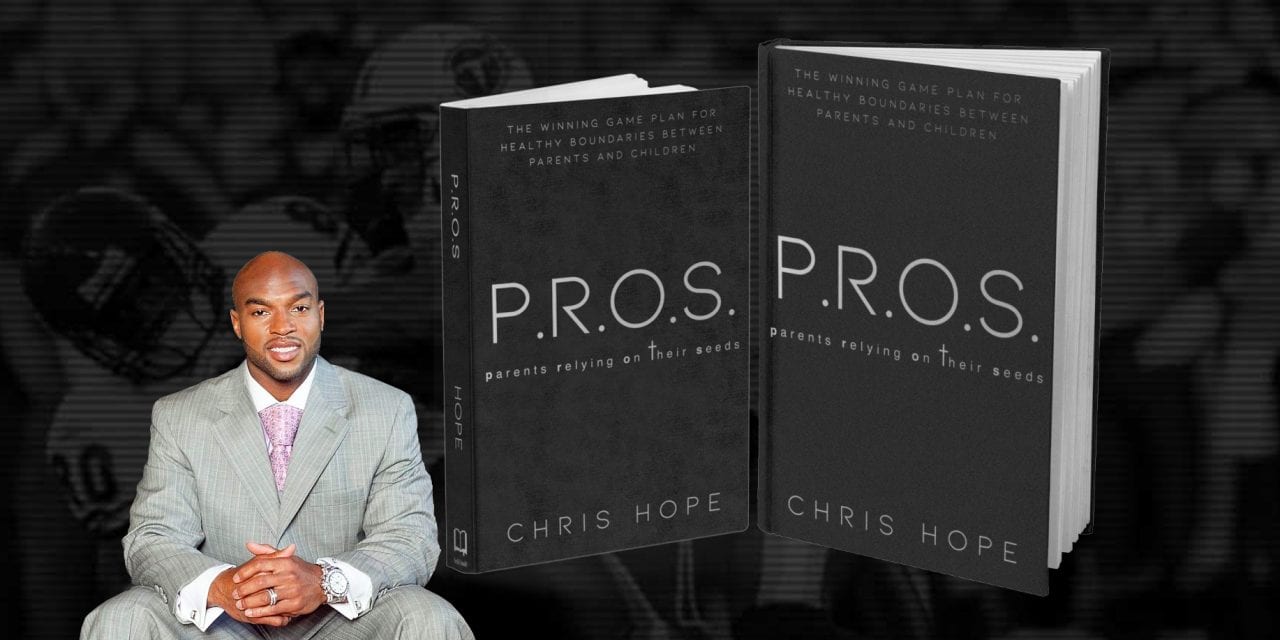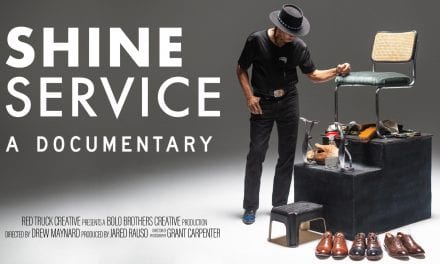According to a 2018 article from CNBC, “Sixty percent of NBA players go broke within five years of departing the league. And 78 percent of former NFL players experience financial distress two years after retirement. Most professional athlete earnings are compressed into just a handful of years.”
This is observed as an issue limited to athletes, but the observation shows a universal problem that young adults encounter. Simply stated, they lack both wisdom to protect themselves from dicey financial situations and the awareness of how hardships can suddenly change their circumstances in dramatic ways.
Many young people will have to learn by making their own mistakes. Luckily, the knowledge of a life well-lived is potable. NFL Super Bowl XL Champion Chris Hope wants to share his experiences to help people just beginning their treks into adulthood. The former safety for the Tennessee Titans has collected his experiences and personal history in his memoir, P.R.O.S. (Parents Relying on Their Seeds). Per his website, Chris’s book “provides practical, inspirational, and biblical answers to show you how to set healthy boundaries with your parents, spouse, children, friends, coworkers, and especially with yourself.”

The book has received praise from several people of note, including best-selling author, financial expert, and popular radio host Dave Ramsey, ESPN “College GameDay” analyst Kirk Herbstreit, 2015 Super Bowl XL Champion, and Pro Football Hall of Fame icon Jerome “The Bus” Bettis, and retired NFL star, Winner of the 1995 Heisman Trophy Award, and actor, Eddie George.
Chris says the decision to share the lessons he’s learned from life so far was divinely inspired. The outlook he’s developed on life comes from the tenacity one builds up when playing sports since age seven. And even though he looks at the world through the eyes of an accomplished athlete, his book appeals to the more honorable, yet simpler roles that everyday people take on as family members. He tells Launch Engine, “First and foremost, I’m a God-fearing man. I’m a husband, and I’m a father of two children. I have a daughter that’s seven years old now… I have a son who just turned five… and I’ve been married for seven, eight years now… I think that the parent and child relationship is so important, in all aspects, in all facets of life.”

Chris thinks that, as individuals, we are all programmed early on to be successful at some point in our lifetimes. Furthermore, he believes that every human has an opportunity to succeed in a way that is personally satisfying.
While many people may achieve success, Chris shares that the question of “Okay, now what?” isn’t properly addressed for young adults. That difference between “getting success” and “keeping success” can be the determining factor in how happy a young person may be when they reach adulthood.

Chris states, “When you do attain success, I think that’s where my book and my experience of the things that I went through being a professional athlete, being a student, being a person who could hang out with the best of the best of ‘em, God has given me the ability to relate, to influence, and, in fact, just connect with all different walks of life.”
For the former professional athlete, the book is a way of helping people achieve success in both their personal and professional lives, and find a work-life balance. “I mean, think about it,” Chris explains. “This is America. We’ve all been striving to become the best version of ourselves—to become successful. The vision for each and every one of us is to have a nice house, a nice, beautiful family, a white picket fence, and a dog.”
According to Chris, the achievement of personal or professional success requires a “never quit” attitude. But he adds that success doesn’t solve everything and that it can present its own problems. Chris warns against letting dedication become a toxic obsession. He says, “It takes a lot of preparation to get to that level of success. It takes, even more, to maintain it and stay there. And throughout that process… we have relationships that fade away or become damaged. We sometimes can become blinded by our own ambition, or become selfish and try to pursue our dreams. I can tell you now that to be able to achieve any and every dream that you’ve ever desired, to chase after [that dream] and not have those that you love the most to celebrate with, that’s the wrong incentive.”

The observation that the winner’s circle is empty without loved ones, intersects vertically and horizontally with Chris’s other philosophies. He’s witnessed the destruction caused by the blind vision and lack of a moral game plan some other athletes have followed as a way to glory. He views the pursuit of success over personal relationships as “a recipe for disaster.”
“You look across the entertainment space, across the world,” Hope says. “You see all of these famous, wealthy celebrities of all sorts. You see all of these individuals who’ve accumulated a mass amount of wealth. And, you peel the layers of the onion… They have terrible relationships with their wives, their children. They’re disconnected from their family, and where they come from.”

Chris says that, in his life, he’s made many mistakes. These mistakes include the decision to wait to have children after retirement (as he was worried about the emotional distraction of having kids while playing professional football) and not before. “I didn’t want to have the responsibility of being a dad, but be a terrible father,” he explains. He accepts that that regret is also a blessing in disguise. Even though he’s been able to enjoy a greater love with his whole family, he’s also been able to make more time for his kids’ first moments.
Looking back, he wishes he would have had the foresight he has now before he pursued the successes in his career. But he’s not filled with regret as he reflects on his mistakes. He says his days begin with excitement as he’s realized that his purpose is to tell his stories. Chris surveys the struggle to maintain healthy relationships as a problem that’s widely encountered in the American workforce. He says that the desire and passion that people have to be the best version of themselves needs to be channeled, to all facets of their lives—especially their personal relationships.
To reinforce those relationships, Chris advises lots of communication at the front end of one’s pursuit of success. Ongoing discussions about the expectations that a family member or friend has, and vice versa, can clear up all kinds of difficulties. Chris says, “The issue that makes most of us frustrated and upset in life is the fact that things don’t go the way we planned. You know, you have a plan of how things are supposed to go in your mind and someone… has an idea or a process of how it’s supposed to go in their mind. And as your expectations warrant, at least on the same playing field or at least in the same ballpark, there’s always gonna be a disconnect.”

Both spiritually and professionally, relationships hold a lot of weight for Chris. Much like a tree being known by its fruit, good personal relationships indicate a content individual. Instead of one trying to find happiness in their work, a person who learns to find joy in their day-to-day life and in the presence of others prepares themself for the difficult climb to career success. On that subject, he offers the following: “You think about the most important relationships in your life. And if they’re not healthy, then you probably won’t produce at the maximum level of your ability in most cases.”
The prose of P.R.O.S. is meant to be a challenge for those aspiring to do their best so that they can remember to be their best at everything. That means using expectations sparingly, and without allowing them to become an emotional dictator. Don’t allow guidelines to become a constant source of disappointment. Instead, accept that there are forces beyond your control, and do everything within your power to meet your goal.
Chris says, “There’s always gonna be room for growth. Room for change. You can’t just be concrete… because life happens.”
For more information about Chris Hope, including how to purchase a copy of P.R.O.S., be sure to visit his website and social media platforms.









